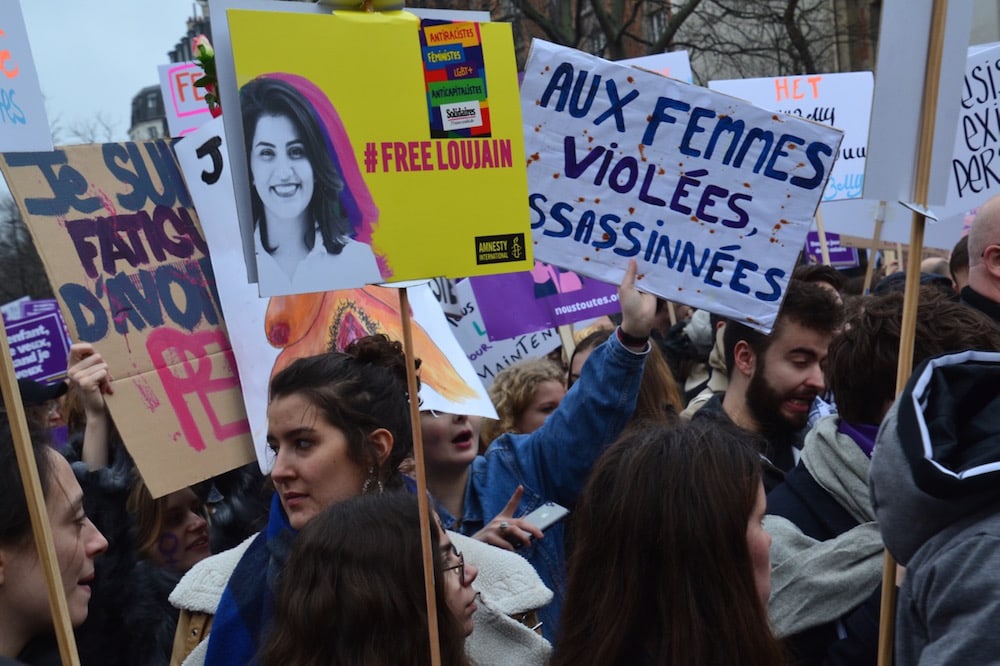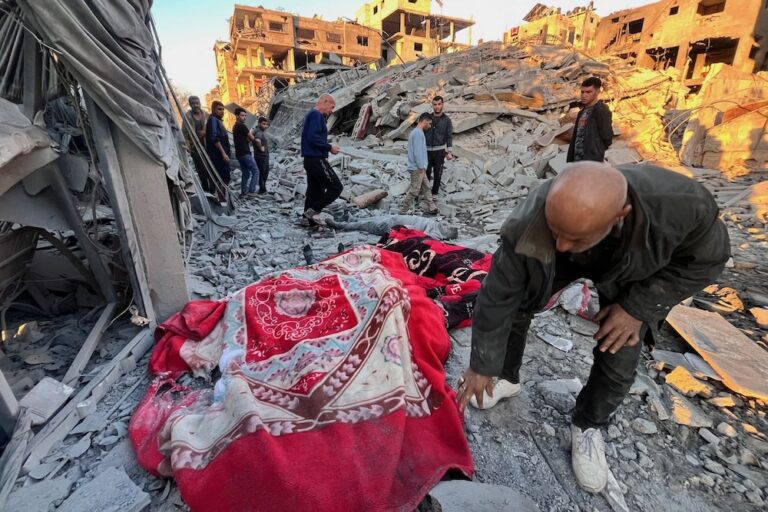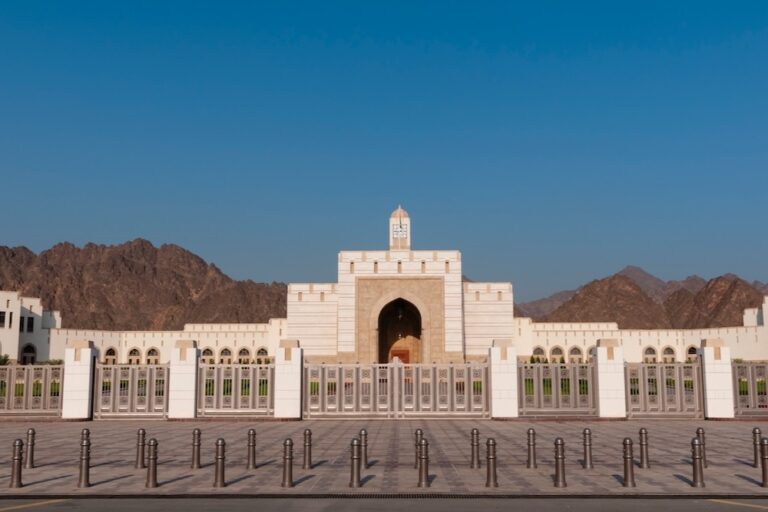December in Middle East and North Africa: A free expression roundup produced by IFEX's Regional Editor Naseem Tarawnah, based on IFEX member reports and news from the region.
Authorities in MENA marked the end of 2020 with a chilling reminder of how deadly a year it has been for the region’s journalists and activists. Justice continues to elude those forcibly disappeared in Syria and Iraq. Civil society battles an increasingly surveilled online civic space.
Pandemic crackdowns and cultivating climates of fear
Harassment, arrests, indefinite detentions, and killings marred December and the past year as authorities sought to erode an already shrinking civic space with a pandemic-fueled crackdown on freedom of expression, assembly, and association.
In Iran, authorities executed journalist Ruhollah Zam last month for committing “Corruption on Earth”, a charge often used against detractors of the regime according to IFEX member International Press Institute (IPI). Sherif Mansour from the Committee to Protect Journalists (CPJ) called the execution “a monstrous and shameful act, and one which the international community must not let pass unnoticed.”
In Saudi Arabia, a terrorism court sentenced women’s human rights defender Loujain Al-Hathloul to 5 years and 8 months in prison. Detained since May 2018, the sentence included a suspension of 2 years and 10 months, in addition to time already served. In a decision condemned by the Free Saudi Activists Coalition, Loujain will still face three years of probation and a five year travel ban after her expected release this year. A criminal court also dismissed a lawsuit by the women’s rights activist for torture she faced while in detention.
Saudi Arabia, Egypt, and Syria ranked amongst the top five worst jailers of journalists according to Reporters Without Borders’ annual round-up of abusive treatment of journalists. The rights group also noted the increased press violations and arrests in response to the COVID-19 pandemic.
In Egypt, for instance, a year of arbitrary arrests that included journalists covering the pandemic, as well as doctors who questioned official narratives, has seen a climate of fear and censorship reach fever pitch. A recent viral video showing chaos at a hospital after several coronavirus patients died allegedly due to a sudden oxygen supply shortage has been demonstrative of this state of fear. While officials denied any negligence, journalists struggled to confirm the incident with doctors being ‘too scared’ to risk criticizing the government.
According to CPJ’s annual global survey of journalists imprisoned for their work, at least three journalists were arrested for their COVID-19 coverage, with a growing number of journalists jailed on charges of spreading “fake news”. In one tragic case, veteran journalist Mohamed Monir was charged with spreading false news after criticizing the government’s handling of the COVID-19 pandemic, only to contract the virus during his pretrial detention and die several weeks later.
IPI called on President Sisi last month to release Al Jazeera journalist Mahmoud Hussein who on 23 December marked his fourth year in detention without a trial or conviction. Meanwhile, columnist Aamer Abdelmonem was detained for “spreading false news and assisting a terrorist organization” after penning a series of articles on Al Jazeera’s website critical of the government’s COVID-19 response.
Video blogger Shady Abu Zeid, who was released earlier this year after spending two years in pretrial detention, was recently re-imprisoned for six months in prison for allegedly insulting a government official in a Facebook post.
Prison conditions have remained a critical issue in Egypt, with rights groups repeatedly calling for the immediate release of political prisoners from unsanitary overcrowded cells.
What’s it like inside an Egyptian prison designed for political prisoners, during a pandemic? Recent documentation smuggled out of the country’s notorious Scorpion Prison highlighted how prisoners there have been completely deprived of adequate ventilation, electricity, and hot water, as a form of ‘collective punishment’ for a September 2020 incident that resulted in the deaths of four guards.
Justice for the disappeared
The rise in violations against journalists and activists has grown alongside impunity for their perpetrators. In Syria, the fate of four activists known as the “Douma Four” who were kidnapped in December 2013 remains unknown, with rights groups continuing to call for accountability seven years after their disappearance.
In Iraq, rights groups marked International Human Rights Day on 10 December by calling on authorities to thoroughly investigate cases of detentions since the start of the October 2019 popular protests, as well as the forcible disappearance and unlawful killings of dozens of Iraqi activists, journalists, and protesters.
Armed militias frequently targeted civil society members during 2020, with authorities failing to hold perpetrators accountable, including the unidentified gunmen who assassinated security expert Dr. Hisham Al-Hashemi in June 2020. On 8 December, activist Fahem al-Tai, was reportedly gunned down in Karbala, while the body of another activist, Ali Najm al-Lami, was discovered in Baghdad on 11 December with gunshot wounds to the head.
“We live daily with the systematic targeting, the impunity, watching soldiers kill our colleagues, blind those who document the occupation and the protests against it. No-one ever faces justice for their crimes against our colleagues.”
In Palestine, complaints submitted to the United Nations by the International Federation of Journalists (IFJ) and the Palestinian Journalists’ Syndicate (PJS) allege that under a shroud of impunity, Israel has used lethal force in its systematic targeting of journalists working in Palestine, while failing to investigate killings of media workers. “We live daily with the systematic targeting, the impunity, watching soldiers kill our colleagues, blind those who document the occupation and the protests against it. No-one ever faces justice for their crimes against our colleagues,” said PJS President Nasser Abubaker. “For them and the families they leave behind we believe these complaints are a fitting first step towards achieving justice for them and all Palestinian journalists”.
Digital surveillance, content moderation, and other online threats
In the digital sphere, a report from Citizen Lab revealed how 36 Al Jazeera journalists and a London-based Al Araby TV journalist were hacked with Pegasus spyware developed by Israeli firm, NSO Group. The surveillance company’s notorious spyware, which has been used extensively in the monitoring of journalists in the region, such as Saudi journalist Jamal Khashoggi and Moroccan journalist Omar Radi, was likely used by government operatives affiliated with the UAE and Saudi Arabia, according to the report.
A coalition of rights groups joined Facebook’s lawsuit against NSO Group that accuses the company of subverting Facebook’s WhatsApp instant messaging service to infect hundreds of targeted devices belonging to activists and dissidents around the world.
“Surveillance tools put activists at risk of imprisonment, torture and killing,” said Gulf Centre for Human Rights director Khalid Ibrahim during an online event last month that saw rights groups discuss how the continued sale of surveillance technology to oppressive governments in the region has put activists at risk.
In an open letter to Facebook, Twitter, and YouTube, dozens of activists, journalists, and rights groups including IFEX, called on the platforms to stop silencing critical voices from the region. The letter voiced concern over content moderation policies that have all too often led to the “silencing and erasure of critical voices from marginalized and oppressed communities” across MENA. “The strategy adopted by social platforms is prejudiced. We are defending opinions and freedoms. We are covering events in an occupied country,” said Palestinian journalist Hani Al-Shaer, whose Facebook account has been deleted ten times in the past three years for posting content the platform deems “incendiary”.
Many of these growing threats to the digital space dominated discussions at last month’s Bread&Net digital rights conference. Experts from the region examined issues focused on privacy, content moderation, and accessibility in the COVID-19 era. The sessions shed light on how an increasingly surveilled online civic space is shrinking due to government and private companies policies.
Meanwhile, in Algeria, authorities blocked three more news websites in an ongoing clampdown on the country’s press. One of the three sites blocked included the Casbah Tribune, whose founder Khaled Drareni was jailed in March 2020 and sentenced in September to two years in prison.
In brief
In Morocco, prominent historian and human rights defender Maati Monjib was arrested for alleged money-laundering. Monib, who was also targeted by Moroccan authorities in 2017 with NSO Group’s Pegasus spyware, denied the allegations. In a Facebook post, Monjib wrote: “the purpose of these lawsuits is to punish me because of a recent statement on the radio in which I talk about the role of the General Directorate of Territorial Surveillance in the repression of opponents and the management of political and media affairs in Morocco.” Rights groups, including IFEX member Vigilance Association, have called for his immediate release.
Western Sahara activists also witnessed a fierce crackdown by Moroccan authorities. Emboldened by an ill-conceived recognition from the Trump administration of Morocco’s sovereignty over Western Sahara last month, pro-independence activists have been beaten, arrested, and subjected to house raids. In one case, security forces surrounded the respective family homes of journalists Ahmed Ettanji and Nazha al-Khalidi on their wedding day, preventing them from carrying out celebrations.
In Jordan, publisher Jamal Haddad was arrested in what rights groups have described as efforts by authorities aimed at intimidating journalists who question the government response to the COVID-19 pandemic. Haddad’s arrest came on the heels of a year marked with numerous arrests of journalists and civil society members, including a court decision on 31 December to dissolve the independent Teachers’ Syndicate, and imprison its board members for a period of one year.
In Iraqi Kurdistan, popular street protests throughout December were met with a wave of arrests. Authorities arrested at least ten journalists, with dozens of young activists being subjected to house raids, beatings, and imprisonment.
In Yemen, journalist and Belqees TV correspondent Adeeb Al-Janani was killed during a deadly attack on Aden airport last month that also saw several journalists injured, and rights groups calling on authorities to hold the perpetrators accountable.
Finally, some good news from Egypt, where journalist Lina Attalah was awarded the Prize for Independence by Reporters Without Borders last month. The editor and co-founder of one of the country’s few independent news outlets, Mada Masr, has been subjected to police raids and questioning as a result of her and her team’s critical work.



